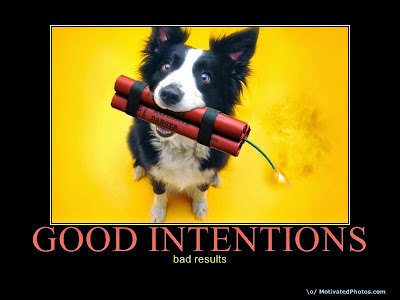"The experts were, by and large, horrific forecasters. Their areas of specialty, years of experience, and (for some) access to classified information made no difference. They were bad at short-term forecasting and bad at long-term forecasting. They were bad at forecasting in every domain. When experts declared that future events were impossible or nearly impossible, 15 percent of them occurred nonetheless. When they declared events to be a sure thing, more than one-quarter of them failed to transpire.Trechos retirados de "The Peculiar Blindness of Experts"
...
Even faced with their results, many experts never admitted systematic flaws in their judgment. When they missed wildly, it was a near miss; if just one little thing had gone differently, they would have nailed it. “There is often a curiously inverse relationship,” Tetlock concluded, “between how well forecasters thought they were doing and how well they did.”
...
Hedgehogs are deeply and tightly focused. Some have spent their career studying one problem. ...
Foxes, meanwhile, “draw from an eclectic array of traditions, and accept ambiguity and contradiction,” Tetlock wrote. Where hedgehogs represent narrowness, foxes embody breadth.
.
Incredibly, the hedgehogs performed especially poorly on long-term predictions within their specialty. They got worse as they accumulated experience and credentials in their field. The more information they had to work with, the more easily they could fit any story into their worldview.
.
Unfortunately, the world’s most prominent specialists are rarely held accountable for their predictions, so we continue to rely on them even when their track records make clear that we should not."
BTW, este anónimo da província apostou em Agosto de 2013 quando todos falavam da espiral recessiva, foi no dia 25 de Abril de 2013. Recordo Outubro de 2013 e sobretudo "Uma espécie de Agosto de 2013".
Há dias publiquei a segunda parte de "O fim de um ciclo":
"Economistas ouvidos pelo Expresso apontam, em média, para uma taxa de desemprego de 6,5% no primeiro trimestre deste ano, o que compara com 6,7% nos últimos três meses de 2018. A confirmar-se, será o valor mais baixo desde 2004"E comparem com "Taxa de desemprego sobe pela primeira vez em três anos":
"No primeiro trimestre de 2019, a taxa de desemprego foi 6,8%, acaba de divulgar o Instituto Nacional de Estatística, registando uma subida de 0,1 pontos percentuais (p.p.) face ao trimestre anterior, mas também uma descida de 1,1 pontos percentuais face ao período homólogo, o primeiro trimestre de 2018. A subida trimestral acontece pela primeira vez desde o primeiro trimestre de 2016."[Moi ici: Recordar "Acerca do desemprego"]A maré já mudou, agora só está a ser atenuada pela boleia demográfica.









%2006.21.jpeg)












